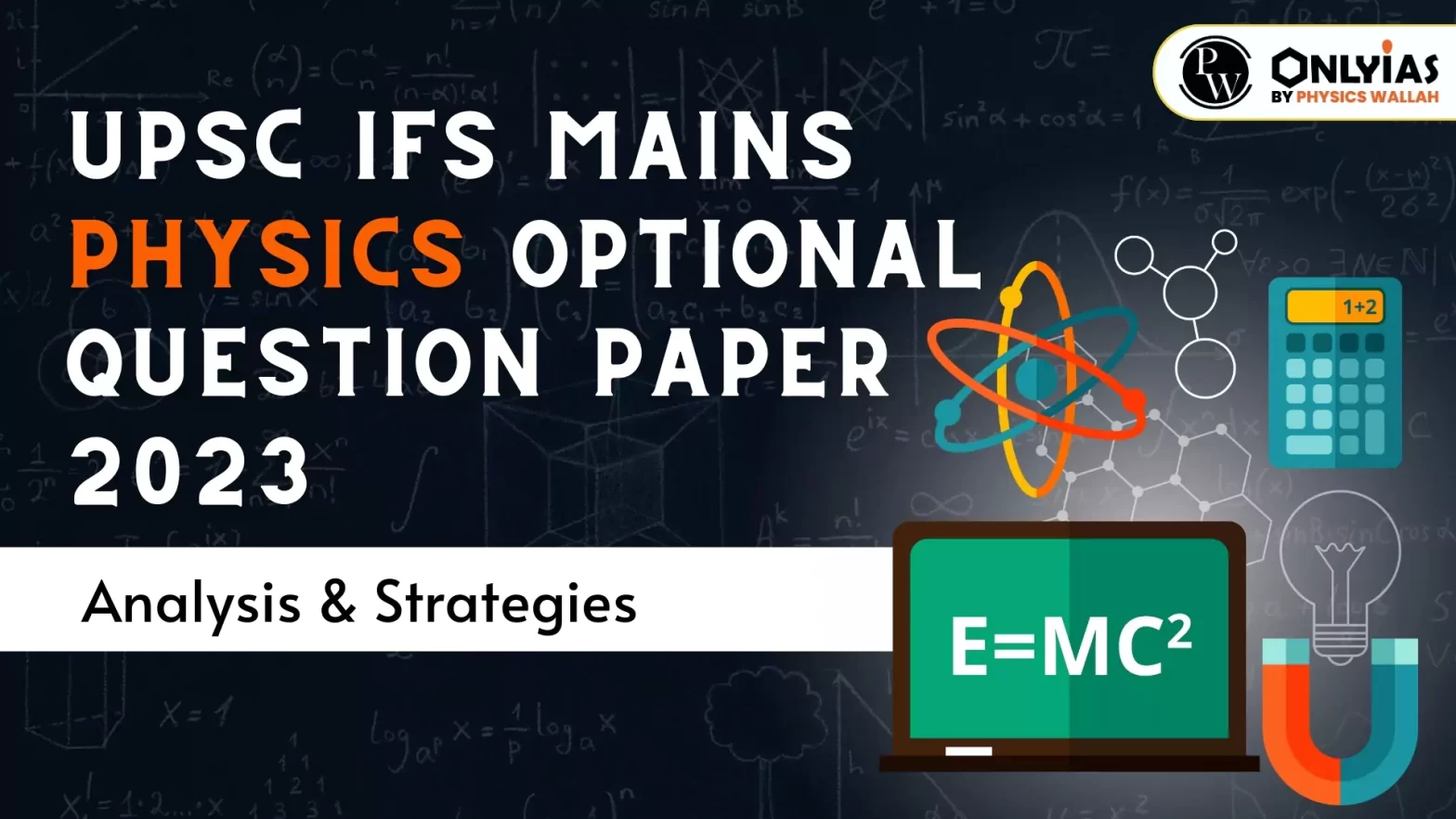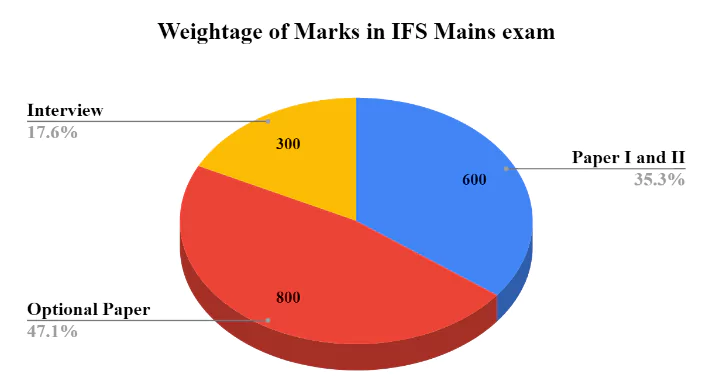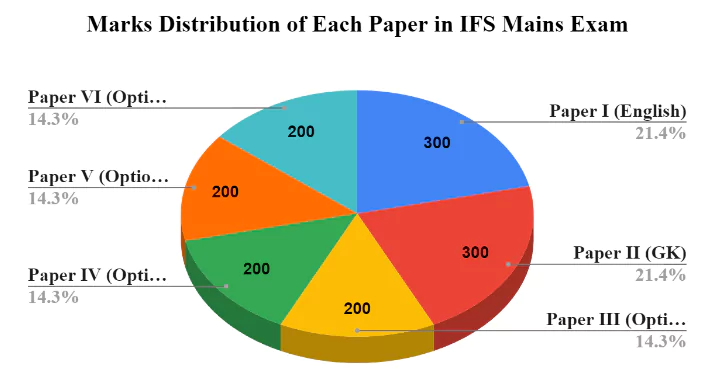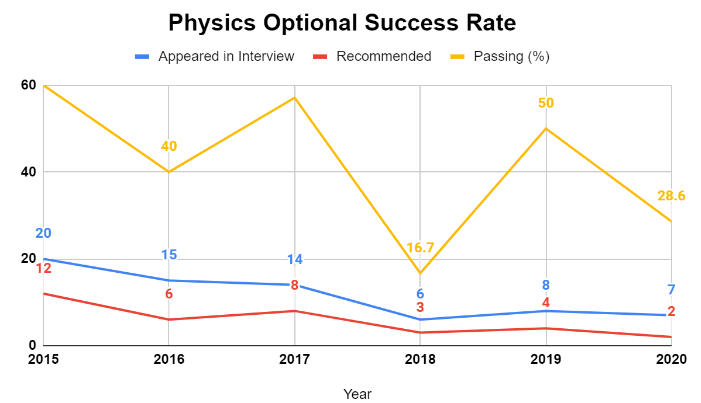Strategize UPSC IFS Mains with Physics Optional Question Paper Insights & Paper Analysis. Download 2018-2022 physics Optional question papers for Prep Boost. Success Trends, Current Affairs Impact, and Pros & Cons of Choosing Physics as Your Optional Subject.

The UPSC IFS mains consist of a total of six papers with a total of 1400 marks. The IFS Mains examination includes two papers: one on English and one on General Knowledge. The remaining four papers (Paper I, Paper II, Paper III and Paper IV) cover optional subjects that candidates have chosen during the application form filling process. Since Paper I and Paper II have a maximum of 300 marks each, the remaining 800 marks depend on the optional subjects. It becomes crucial to choose the right optional subject and employ the right strategy so that candidates can score as much as possible. First, we will explore the importance and weightage of optionals, and then we will analyze Physics Optional question papers as an optional subject.
| Download IFS 2023 Physics Optional Paper-01 Download IFS 2023 Physics Optional Paper-02 |
In UPSC IFS mains examination candidates have to choose two optional subjects from the list specified in the notification unlike UPSC IAS mains exam in which candidate has to choose only one optional subject. In IFS exam optional subjects have very high scoring potential because after Paper I and Paper II which consist of 600 marks optional have 800 marks so here optional plays a decisive role in determining your selection as well as to achieve a good rank.

It is evident that in the entire selection process, the optional subject plays a crucial role in preparing for the UPSC IFS exam, as it accounts for almost 48% of the total marks. This substantial portion contributes significantly to the overall evaluation of the entire exam.

Upon further magnification, we can conclude that in the IFS mains examination, the optional section carries almost 58% of the total mains marks. Therefore, scoring well in the optional section, along with Paper I and Paper II, will result in higher overall marks in the exam.
In the UPSC IFS Mains exam, the Physics Optional Question Paper consists of two papers, specifically Paper I and Paper II. Each of these papers carries a weightage of 200 marks, summing up to a total of 400 marks for this optional subject. Among the various optional subjects offered by UPSC in IFS, Physics Optional Question Paper is one of the 14 optional subjects available to candidates.
| Physics | Syllabus of Physics Optional Question Paper |
| Paper I | Classical Mechanics: Dynamics, Systems, and Rigid Bodies Exploration
Special Relativity, Waves & Geometrical Optics: A Comprehensive Exploration
Physical Optics: Interference, Diffraction, and Modern Optics
Electricity and Magnetism: Fields to Statistical Thermodynamics
|
| Paper II | Quantum Mechanics I: Principles and Applications
Nuclear Physics: Insights into Fundamental Forces
Electronics: Fundamentals to Applications Intrinsic and extrinsic semi-conductors-p-n-p and n-p-n transistors. Amplifiers and oscillators. Op-amps. FET, JFET and MOSFET. Digital electronics-Boolean identities, De; Morgan’s laws, Logic gates and truth tables, Simple logic circuits. Thermistors, solar cells. Fundamentals of microprocessors and digital computers. |
UPSC physics Optional question papers from 2018 to 2022 are readily available for aspirants seeking to enhance their preparation. We provided access to the UPSC IFS physics Optional question paper in PDF format, an invaluable resource for your preparation.
| Year | Paper |
| UPSC IFS Physics Optional Question Paper 2018 | Download Paper I |
| UPSC IFS Physics Optional Question Paper 2019 | Download Paper I |
| UPSC IFS physics Optional question paper 2020 | Download Paper I |
| UPSC IFS physics Optional question paper 2021 | Download Paper I |
| UPSC IFS physics Optional question paper 2022 | Download Paper I |
Candidates appearing for the UPSC (Union Public Service Commission) IFS examination must make a thoughtful choice when selecting their optional subject, as it holds substantial weightage in the evaluation process. With a total of 800 marks allotted, the optional subject constitutes approximately 48% of the combined marks for both the written exam and the personality test.
The table below offers a comprehensive overview of the success rate achieved by candidates who opted for physics Optional question papers as their optional.
| Year | Number of Candidates | ||
| Appeared in Interview | Recommended | Passing (%) | |
| 2015 | 20 | 12 | 60 |
| 2016 | 15 | 6 | 40 |
| 2017 | 14 | 8 | 57.1 |
| 2018 | 6 | 3 | 16.7 |
| 2019 | 8 | 4 | 50 |
| 2020 | 7 | 2 | 28.6 |

Please note that before selecting Physics as your optional subject, carefully weigh these disadvantages against the advantages and consider your own background, interests, and the time you can dedicate to preparation.
| Must Read | |
| NCERT Notes For UPSC | UPSC Daily Current Affairs |
| UPSC Blogs | UPSC Daily Editorials |
| Daily Current Affairs Quiz | Daily Main Answer Writing |
| UPSC Mains Previous Year Papers | UPSC Test Series 2024 |
<div class="new-fform">
</div>